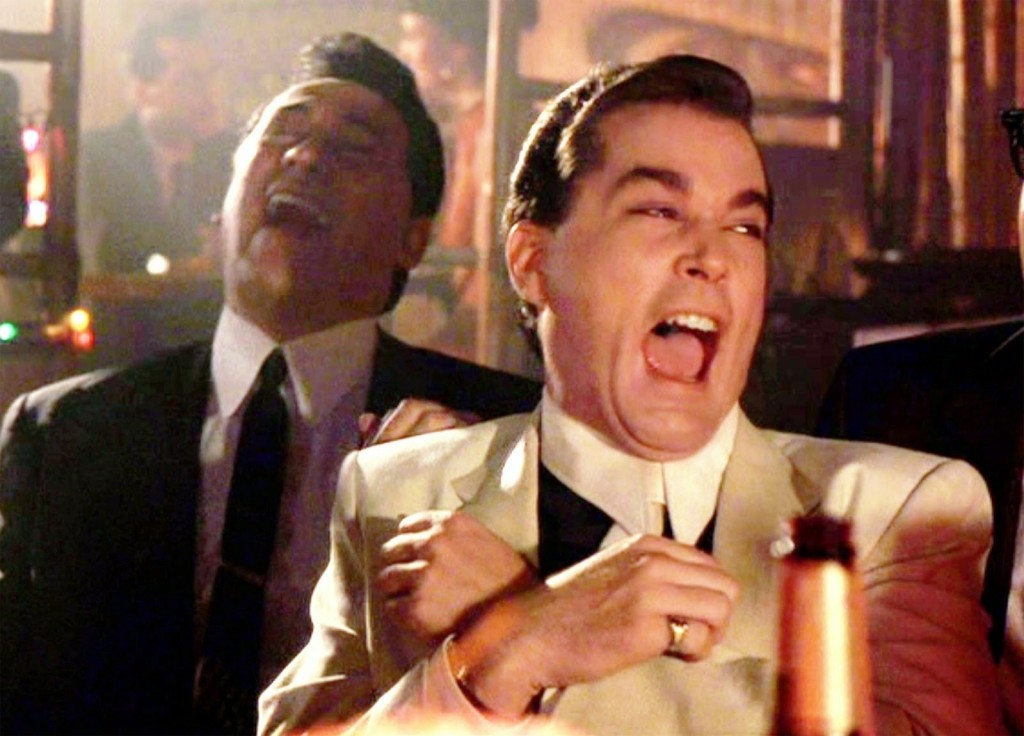“Wisely, and slow. They stumble that run fast.”
William Shakespeare
Today – February 26, 2021 – at 12:13pm ET – in what appears to be a well-managed front run of press collaboration by Facebook, Paypal and Amazon veteran and now Robinhood Chief Marketing Officer, Christina Smedley (you know, because this is all about balancing the scales between the Establishment and the little guy, right?) – the Wall Street Journal published “Robinhood in Talks to Settle Finra Probes Into Options-Trading Practices, Outages” based on a filing that says the company is also being examined by the SEC, states.
Nearly 20 minutes later, at 12:41:25pm ET, that filing appears to have been officially accepted by the U.S. Securities and Exchange Commission (SEC), according to an alert I received from the SEC via email at 12:46pm ET…
Now, there’s a lot going on within the Robinhood story, for sure. So much so that it has attracted the white hot spotlight of mainstream media and the top echelons of federal legislators and regulators. One of the primary threads of that story is whether financial incentives that make a zero-commission framework possible are good for markets. Most recently, Alphacution has illustrated those incentives here, here and elsewhere on our Feed.
I will save my powder on the question for another time; instead pointing you to one of the better discussions on the matter of late, Munk Debates podcast S2E14, “Be it resolved, the GameStop frenzy is good for investors and good for financial markets,” with debaters, Danny Moses – noted hedge fund trader featured in The Big Short and Flash Boys – and Tom Sosnoff – serial entrepreneur and co-founder of thinkorswim in 1999, tastytrade in 2011, and tastyworks in 2017. After the recent sale of tastytrade to British retail broker, IG Holdings, for $1 billion, let’s just say that Sosnoff’s version of “talking one’s book” in this discussion leaves an extra syrupy aftertaste…
Anyway, another of the primary threads in the Robinhood story comes down to the nature of scaling. How (and to what extent) trading and asset management firms grow their businesses – given competitive, regulatory, technological, human capital, economic, cultural and other (unexpected) factors – has always been a primary focus of Alphacution’s research because it gets to the nature of business strategy (which has a symbiosis with trading or investment strategy). In the case of Robinhood – separate from their original stroke of creativity, innovation and initiative to devise and promote their unique approach like no other – I believe that they have simply grown too fast, and therefore, made critical errors along the way that could have been avoided (or minimized) had they adopted a growth strategy that was a bit more organic.
I am reluctant to place blame fully at the feet of Robinhood’s founders, Baiju Bhatt and Vlad Tenev. (The fact that Bhatt has stepped back as the co-face of the operation suggests that he may have been more sympathetic to the concept of “democratizing finance” of the two; thus preserving a bit more of his street cred – at least with me.) They designed the thing, but weren’t alone when Frankenstein’s monster broke out of the lab. And, perhaps one could argue that the conditions of the pandemic fueled use of the RobinhoodApp beyond anyone’s expectations – or preparations. Nevertheless, I do place a lot of the blame for the snafus at the feet of Robinhood’s venture investors, particularly the multiple-rounders, Andreesson Horowitz, Ribbit Capital and Sequoia Capital. This sentiment was captured in a recent article in USA Today, “Critics say Robinhood more aligned with the wealthy than average investors,” in which a small segment of my spleen may have inadvertently been vented…
Robinhood could have curtailed the pace of new accounts or reduced the deployment of mania-inducing confetti bombs, as a couple examples, in lieu of focusing on more robust operational resiliency measures. Easy to say in hindsight. But, without the pressure (spoken or otherwise) to go public via IPO looming since 2018 – thereby uncorking the phenomenal value that had piled up over such a short period of time – I believe that some (maybe much) of the stained and soiled laundry you will find below could have been avoided.
Bring on the charm offensive, Christina!
As if on cue (as I am about to hit the Publish button), behold a truly balls-dangling communications move: Via Bloomberg at 8:49pm ET on a Friday night, “Robinhood to Plan Confidential IPO Filing as Soon as March” …
The following has been copied – in its entirety and without edits – from Note 7 (Commitments and Contingencies) and Note 9 (Subsequent Events) of Robinhood Financial, LLC’s annual audited report on Form X-17a-5 for 2020. Note that 1) abbreviations in the following content include RHF (Robinhood Financial, LLC), RHM (Robinhood Markets, Inc. – the “Parent”) and RHS (Robinhood Securities, LLC); and 2) as of the writing of this Feed post, the audited financial report on Form X-17a-5 for RHS – the entity that includes data that Alphacution used to estimate average account size for content such as the New York Times article, “Robinhood Has Lured Young Traders, Sometimes With Devastating Results” – has yet to be filed… (The last three RHS X-17a-5 reports were filed between 2/28 and 4/13 of the respective years.)
NOTE 7: COMMITMENTS AND CONTINGENCIES
Contingencies
The securities industry is highly regulated and many aspects of our business involve substantial risk of liability. In past years, there has been an increasing incidence of litigation involving the brokerage industry, including class action suits that generally seek substantial damages. Damages may include, in some cases, punitive damages. Compliance and trading problems that are reported to federal, state and provincial regulators, exchanges or other self-regulatory organizations by dissatisfied customers are investigated by such regulatory bodies, and, if pursued by such regulatory body or such customers, may rise to the level of arbitration or disciplinary action. We are also subject to periodic regulatory audits and inspections.
Like other brokerage firms, we have been named as a defendant in lawsuits and from time to time we have been threatened with, or named as a defendant in arbitrations and administrative proceedings.
Legal and regulatory matters
The outcome of legal and regulatory matters discussed in this section is inherently uncertain and some of these matters may result in adverse judgments or awards, including penalties, injunctions or other relief, and we may also determine to settle a matter because of the uncertainty and risks of litigation. Described below are certain historic matters as well as certain pending matters in which there is at least a reasonable possibility that a material loss could be incurred. We intend to continue to vigorously defend the pending matters. Litigation is inherently uncertain, and any judgment entered against us, or any adverse settlement, could materially and adversely impact our business and financial condition. Unless otherwise noted below with respect to a specific matter, we are unable to provide a reasonable estimate of any potential liability given the uncertain nature of litigation and the stage of proceedings in these matters. With respect to all other pending matters not disclosed below, based on current information, we do not believe that such matters, individually or in the aggregate, would have a material adverse impact on our business, financial condition.
Best Execution, Payment for Order Flow, and Sources of Revenue Matters
Beginning on December 23, 2020, four putative securities fraud class action lawsuits were filed against RHM, RHF, and/or RHS. Three were filed in the United States District Court for the Northern District of California: Kwon v. Robinhood Financial LLC et al., Luparello v. Robinhood Financial LLC et al., and Nabi v. Robinhood Financial LLC et al. One was filed in the United States District Court for the Southern District of California: Ghebrehiwet v. Robinhood Financial LLC et al. The lawsuits generally allege that we violated the duty of best execution and misled putative class members by publishing misleading statements and omissions in customer communications relating to the execution of trades and revenue sources (including payment for order flow). The three complaints filed in the Northern District of California assert claims for violations of Sections 10(b) of the Securities Exchange Act of 1934. All four complaints assert state law claims under California law, and seek damages, restitution, disgorgement, and other relief.
March 2020 Outages
On March 2-3, 2020, our platform experienced an outage across various services, which prevented customers from using the app, website, and help center. On March 9, 2020, our platform experienced an outage across its trading products, which prevented customers from placing trades (together with the March 2-3 outages, the “March 2020 Outages”). There are many uncertainties associated with these types of incidents and impacts associated with service outages have included, and may in the future include, remediation costs to customers, systems upgrades, increased insurance costs, adverse effects on compliance with laws and regulations, litigation, and reputational damage.
Beginning on March 4, 2020, putative class actions were filed against RHM, RHF, and RHS in state and federal district courts relating to the March 2020 Outages. All but one of the cases have been consolidated as In re Robinhood Outage Litigation in the United States District Court for the Northern District of California. The remaining putative class action, Withouski v. Robinhood Financial LLC et al., pending in the Superior Court of the State of California, County of San Mateo, has been stayed by agreement of the parties. The lawsuits generally allege that putative class members were unable to execute trades during the March 2020 Outages because our platform was inadequately designed to handle customer demand and RHM, RHF, and RHS failed to implement appropriate backup systems. The lawsuits include, among other things, claims for breach of contract, negligence, gross negligence, breach of fiduciary duty, unjust enrichment, and violations of certain California consumer protection statutes. The lawsuits generally seek damages, restitution, and/or disgorgement, as well as declaratory and injunctive relief. On October 5, 2020, RHM, RHF, and RHS filed a motion to dismiss the consolidated amended complaint and to strike the class allegations. On February 18, 2021, the court dismissed RHM from the case with leave to amend, but otherwise denied the motion, and
ordered the parties to select a mediator within 14 days.
In addition, the SEC staff is conducting an examination, and FINRA and certain state regulatory authorities are conducting investigations, regarding the March 2020 Outages and related procedures. RHM, RHF, and RHS are cooperating with requests from these regulators.
Options Trading and Related Customer Communications and Displays
The SEC staff is conducting an examination, and FINRA and certain state regulatory authorities are conducting investigations, regarding RHF’s options trading and related customer communications and displays. The SEC staff, FINRA staff and staff of such state regulatory authorities are reviewing, among other things, how RHF displays cash and buying power to customers and its options trading
approval processes. RHF is cooperating with the regulators’ requests.
On February 8, 2021, the family of Alexander Kearns, a Robinhood customer who traded options, filed a lawsuit in the Superior Court of the State of California, County of Santa Clara, against RHF, RHS, and RHM in connection with Mr. Kearns’s death by suicide in June 2020. The lawsuit asserts claims for wrongful death, negligent infliction of emotional distress, and unfair business practices under a California statute, and seeks damages and other relief.
Potential Resolution of FINRA Matters
RHF and RHS are currently engaged in discussions with FINRA staff regarding a possible negotiated resolution of certain FINRA matters, including the March 2020 Outages and options trading and related customer communications and displays noted above. While these discussions are ongoing, RHF and RHS anticipate that any resolution, if reached, would involve charges of violations of FINRA rules, a fine, customer restitution, a censure, and a compliance consultant. We have accrued in our statement of financial condition for the year ended December 31, 2020 of $26.6 million representing the bottom of the range of our probable losses. We cannot predict, however, whether these discussions will result in a resolution of these matters.
Account Takeovers
FINRA and state and federal regulators, including the SEC, the New York State Department of Financial Services and the New York Attorney General’s Office, are conducting various inquiries concerning RHM, RHF, and RHC related to account takeovers, or circumstances under which an unauthorized actor successfully logs into a customer account. RHM, RHF, and RHC are cooperating with these inquiries. On January 8, 2021, a putative class action was filed against RHF and RHS by Siddharth Mehta, purportedly on behalf of approximately 2,000 Robinhood customers whose accounts were allegedly accessed by unauthorized users from January 1, 2020 to October 16, 2020.
The lawsuit generally alleges that RHF and RHS breached their own privacy policies and various California laws, including the California Consumer Protection Act, by failing to freeze these customer accounts and alert such customers immediately after the breach occurred.
Massachusetts Securities Division Complaint
On December 16, 2020, the Enforcement Section of the Massachusetts Securities Division (the “MSD”) filed an administrative complaint against RHF, which stems from an investigation initiated by the MSD on or around July 21, 2020. The Complaint alleges three counts of Massachusetts securities law violations regarding unethical and dishonest conduct or practices, failure to supervise, and failure to act in accordance with the Massachusetts fiduciary duty standard, which became effective on March 6, 2020 and had an effective enforcement date beginning September 1, 2020. Among other things, MSD alleges that RHF’s product features and marketing strategies, outages, and options trading approval process constitute violations of Massachusetts securities laws. The complaint seeks, among other things, injunctive relief (seeking a permanent cease and desist order), censure, restitution, disgorgement, an independent consultant, and an administrative fine. On January 29, 2021, RHF filed an answer to this complaint.
Pinchasov v. Robinhood Financial LLC
On November 5, 2020, Plaintiff Shterna Pinchasov (“Plaintiff”) filed a putative class action in the Circuit Court of the 11th Judicial Circuit of Florida in and for Miami-Dade County asserting claims of negligence and breach of fiduciary duty based on allegations that RHF failed to prevent customers from using its interface for stocks that were subject to a “T1 Halt,” and seeking damages. Securities exchanges, such as the New York Stock Exchange and the Nasdaq Stock Market, have the authority to halt and delay trading in a security, and a “T1 Halt” (or regulatory halt) may occur pending the release of material news about a company.
On November 30, 2020, RHF removed this action to the Southern District of Florida pursuant to the Class Action Fairness Act of 2005. On December 21, 2020, RHF filed a motion to dismiss the complaint. On February 17, 2021, the federal district court denied Plaintiff’s motion to remand to state court.
Gordon v. Robinhood Financial LLC
On October 29, 2019, a putative class action was filed against RHF and RHM in the Superior Court for the State of Washington, County of Spokane. The complaint alleges that RHF and RHM initiated or assisted in the transmission of commercial electronic text messages to Washington State residents without their consent in violation of Washington State law. The action has been removed to the Eastern District of Washington, pursuant to the Class Action Fairness Act of 2005, and the court granted RHM’s motion to dismiss for lack of personal jurisdiction. On January 7, 2020, we filed a motion to dismiss the complaint, which was denied. On January 25, 2021, the court granted the plaintiff’s motion for class certification. A trial date has not been set yet.
NOTE 9: SUBSEQUENT EVENTS
We have evaluated events subsequent to the balance sheet date for items requiring recording or disclosure in the financial statement. The evaluation was performed through the date the financial statement was available to be issued.
Capital distribution to Parent
On January 29, 2021, we distributed capital in the amount of $40.0 million to the Parent.
Early 2021 Trading Restrictions
Beginning on January 28, 2021, due to unprecedented market volatility and related portfolio margin demands imposed on RHS by the clearinghouse National Securities Clearing Corporation, RHS temporarily restricted or limited its customers’ purchase of certain securities, including GameStop Corp. and AMC Entertainment Holdings, Inc., on our platform (“Early 2021 Trading Restrictions”).
As of the date the financial statements were available to be issued, we have become aware of approximately 46 putative class actions and three individual actions that have been filed against RHM, RHF, and/or RHS in various federal and state courts relating to the Early 2021 Trading Restrictions. The complaints generally allege breach of contract, breach of the implied covenant of good faith and fair dealing, negligence, breach of fiduciary duty and other common law claims. Several complaints further allege federal securities claims, federal and state antitrust claims, federal computer fraud claims, and/or certain state consumer protection claims based on similar factual allegations. Approximately seventeen of the putative class actions also name other broker-dealers and/or market makers as defendants. We believe that the claims in these lawsuits are without merit and intend to defend against them vigorously.
As of the date the financial statements were available to be issued, RHM, RHF, and/or RHS have also received inquiries related to the Early 2021 Trading Restrictions from the United States Attorney’s Office of the Northern District of California, the SEC’s Division of Examinations, FINRA, the New York Attorney General’s Office, other state attorneys general offices, and a number of state securities
regulators, as well as several inquiries based on specific customer complaints. We have also received information requests from the United States Congress. We are cooperating with these requests.
Due to the very preliminary nature of all of these proceedings, we are unable at this time to estimate the likelihood or magnitude of any possible losses related to these matters.
Until next time…







